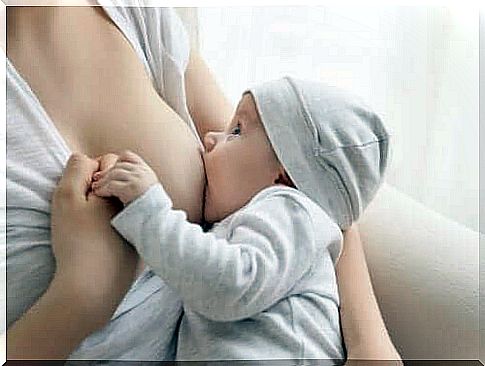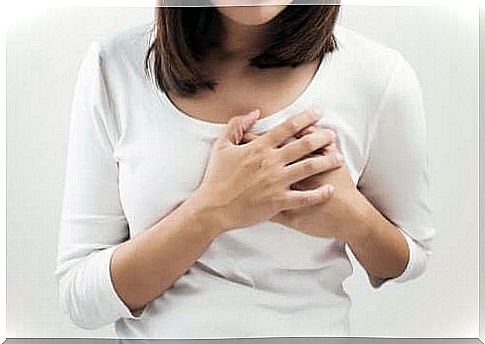Effects Of Mastitis On Infants – You Are Parents

Mastitis is a fairly common disease that appears in women at the time of breastfeeding. The woman suffers from it, and not only on the physical level. In addition to the sharp pain, she is worried about the effects of mastitis on her baby and this can turn into obsession and anxiety.
The mother is aware of the importance of breast milk for her baby. Anything that hinders the ability to breastfeed her baby makes her nervous; seeing a doctor is therefore always a good idea.
What causes mastitis?
Mastitis is an inflammation of the mammary gland that appears because of an infection. But why do the breasts get infected and cause mastitis?
- Breasts sometimes get infected from germs entering through crevices on the nipple or small, imperceptible wounds. When the baby sucks, the breasts are affected; this is a very common cause of mastitis. “Staphilococcus aureus” is the most common agent in mastitis.
- A type of mastitis is caused by bacteria from the skin entering the breasts.
- Other times, breast milk itself causes inflammation by stagnating inside the breast ducts. This happens when the woman produces a lot of milk and when the baby drinks a very small amount; the breast does not empty completely. The milk stagnates and this causes infection and mastitis.
- A woman’s weak defenses are also a factor that contributes to the onset of mastitis. Stress and an unbalanced diet can cause a temporary weakening of the immune system; the woman is then more vulnerable to infections.

What are the effects of mastitis on the infant?
In practice, this pathology can also have effects on the infant. Since this is an infection, there are always harmful agents present.
Milk from a gland affected by mastitis will have a higher concentration of microbes. And these germs will be transmitted to the baby when he drinks the milk.
Scientists have not found a link between mastitis and causes of illness in infants. It has been proven that children who for a few months fed on milk from breasts with mastitis grew quite normal and healthy.
Even though there are no health problems for the baby when he ingests milk affected by mastitis, he feels great discomfort, just like his mom. The woman will have severe pain when her baby sucks, and the baby will be frustrated because the milk will not come out as quickly as usual. He may notice a change in flavor because this milk is a little more salty.
In severe mastitis, the breast may be blocked and the milk may not come out. The so-called “pearl of milk” is then formed. This is one of the effects of mastitis in infants that affects the little one the most because they cannot suckle.
It is true that the child will not remain calm and will quickly become irritable. The feedings will be longer and more frequent because less milk will come out of each breast.
It is important to see a doctor because sometimes continued breastfeeding with mastitis prevents the breast from healing properly. The professional has the necessary elements to assess each situation and suggest a treatment. In addition, he will always try to avoid withdrawal, which is only recommended in extreme cases.

Prevention
Some prophylaxis can help prevent mastitis:
- A healthy diet. It is advisable to consume foods rich in vitamins and minerals.
- Careful hygiene of the body.
- Emptying the breasts is important. It is important to prevent the milk from stagnating in the ducts. Therefore, if the baby does not consume all the milk, the rest should be extracted.
- Get the little one used to sticking to the breast.
- Do not put on tight bras.
- Massage your breasts if you notice any hardening.
The conclusion from everything we have just discussed is that the mother who breastfeeds her baby must continue to do so despite the mastitis. The effects of the latter on the infant will not be very serious: he will just be a little irritated and angry.









